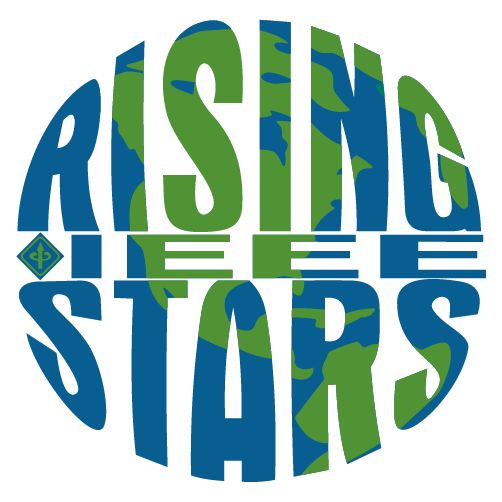
Cyber security. It’s more than a buzzword on the evening news. The protection of information and systems becomes more important every day. The way we bank, shop, and live is directly affected by how well our information is guarded. The rate of growth for jobs in information security is projected at 37% from 2012 to 2022. This year at Rising Stars, we’re giving you a glimpse into the world of cyber!
Early Warning LLC is a leading technology company that protects and advances the financial system. The Early Warning Cyber Team has placed first in the 2016 DEF CON 2016 Cmd+Ctrl Capture-the-Flag(CTF) event held in Las Vegas, a claim few security teams can make. Early Warning placed 2nd in the competition this year! They have been gracious enough to host a Capture-the-Flag competition for the attendees of Rising Stars 2018.
Setting up for the competition is easy:
1) Download Oracle VM VirtualBox from https://www.oracle.com/technetwork/server-storage/virtualbox/downloads/index.html and install it
2) Download the Kali Linux VirtualBox image from https://www.offensive-security.com/kali-linux-vmware-virtualbox-image-download/
3) Follow the instructions in this guide to get your Kali up and running: https://www.blackmoreops.com/2014/04/08/detailed-guide-installing-kali-linux-on-virtualbox/
There is training for the competition
You can try out OWASP Security Shepard: https://www.owasp.org/index.php/OWASP_Security_Shepherd
OR Go right into a challenge by going to http://overthewire.org/wargames/ and completing the wargames listed. Let us know how you’re doing on social media!
If you’re considering a career in the cyber security realm, please visit https://www.earlywarning.com/careers-opportunities/security.html
Early Warning would love to talk to you!
For more information about the CTF or how to prepare, please send an email to Skyler Nix [email protected]
Around the world, EPICS in IEEE is transforming lives with a unique blend of technology and education. Since it was launched in 2009, the program has become a leading global resource for engineers and engineering students seeking to provide critical technological support for communities in need. An IEEE Foundation Signature Program managed and steered by the IEEE Educational Activities Board, EPICS in IEEE embodies the IEEE mission: Advancing Technology for Humanity.
The concept for partnering students with community service agencies to solve engineering-based problems began with Engineering Programs in Community Service (EPICS) at the Purdue University College of Engineering. Today, EPICS in IEEE is a proven platform to deliver immediate impact and long-term sustainability by building intellectual capital, human resources planning and technological literacy.
Students participating in the program – whether they’re university undergraduates or high school students – gain a first-hand appreciation for how technology improves lives in their own communities. This is also almost certain to stimulate a lifelong interest in community engagement.
But more immediately, what students learn as EPICS in IEEE volunteers can nurture and help to enhance their future careers. The process to define, design, build, test, deploy and support an engineering-based solution offers undergraduate students significant opportunities to broaden their skills. This is critical for the next generation of engineers, who will enter a professional world where they’ll need even more to succeed besides expertise in their discipline.
Proficiencies such as project management, leadership, teamwork and communication generally aren’t the focus in engineering curricula – but these important skills are vital for career success. Students who volunteer for an EPICS in IEEE project receive abundant opportunities to develop these tools.
—-
Submitting A proposal:
IEEE members submit project proposals for funding from EPICS in IEEE. The project must involve a non-profit organization partner, and must provide a technical solution in IEEE fields of interests to problems in one or more of the EPICS in IEEE categories. Collaboration with a local high school is also encouraged. Applications are accepted throughout the year.
The following information should be included in the application:
- contact information for the project lead and alternate;
- non-profit community organization partner and their mission;
- secondary-school partner*;
- project duration;
- detailed budget;
- project title and emphasis, and
- project description, objectives and methodology.
(*If partners have not been identified, a pre-application can be submitted for feedback on a proof of concept.)
The EPICS in IEEE team will review the submission and choose one project as the winner. The winning team will be announce at the 2018 Rising Stars Conference.
If funding is provided, the project lead agrees to provide reports on technical plans/progress, student demographics and student outcomes to the EPICS in IEEE team. EPICS in IEEE awards are to be used for project-related supplies (as opposed to personnel costs) and typically range from $1,000 to $10,000 apiece.
EPICS in IEEE only accepts project proposals from current IEEE members.
As you go through the application, the following are questions the EPICS in IEEE Committee typically look for as they review your proposal. Please use the following questions as a guide while entering your proposal.
- Does the project address some element of engineering design?
- Does the project align well with the needs of the non-profit (NGO)?
- Will the non-profit organization continue or sustain project implementations once it is completed?
- How does this project fit within the scope of the EPICS theme?
- How is the project an example of service learning? Is there a meaningful impact on the participants?
- How does the budget match the proposed efforts, and are the budget items allowable? *EPICS in IEEE typically only funds requests for materials and it does not typically approve requests for stipends, honorariums, maintenance, etc. *
- What is the pre and post assessment plans for the project ( how will success be measured)?
To complete a proposal please visit: https://epics.ieee.org/applicants/proposal
For more information, look at the following resources:
EPICS in IEEE: Progress Report 2015
https://drive.google.com/open?id=0B_PTxcW89F2oa2pFOXR1WlNfcGM
EPICS in IEEE: Progress Report 2016
https://drive.google.com/open?id=0B_PTxcW89F2oTWZSaUZmcFJLdVk
EPICS in IEEE in 30 Seconds
https://drive.google.com/open?id=0B_PTxcW89F2oRG1oWDFhVk93ejA
EPICS in IEEE Spotlight NJIT 2016
https://drive.google.com/open?id=0B_PTxcW89F2obXVfOUxhX0pvSVE

